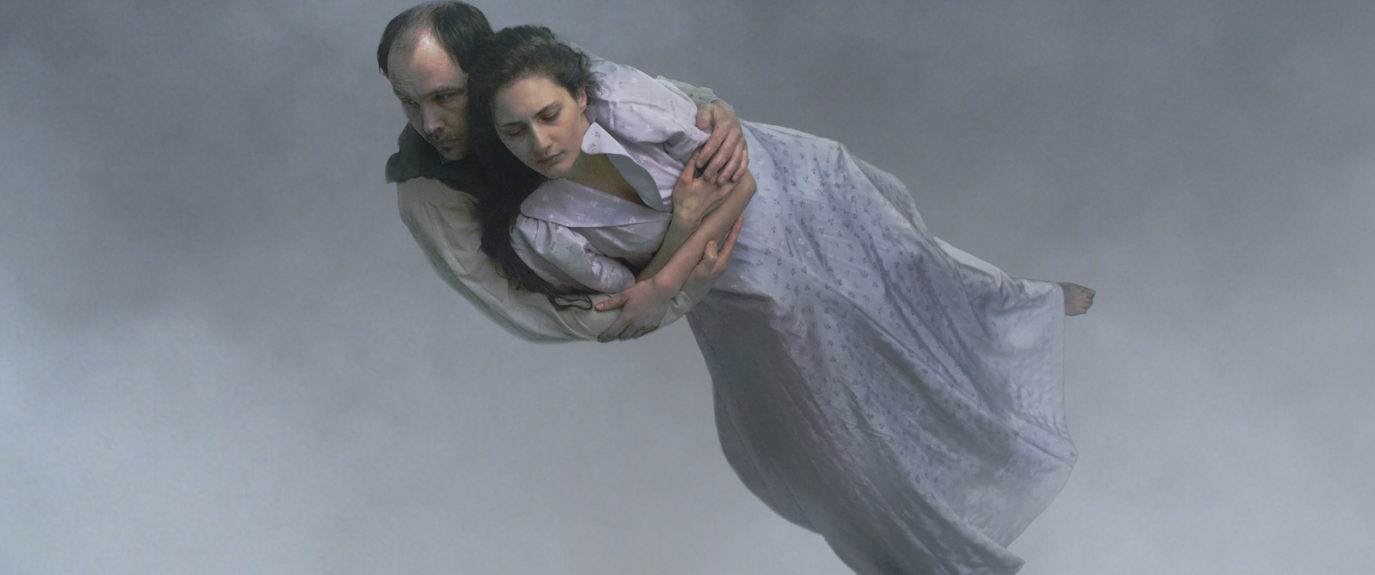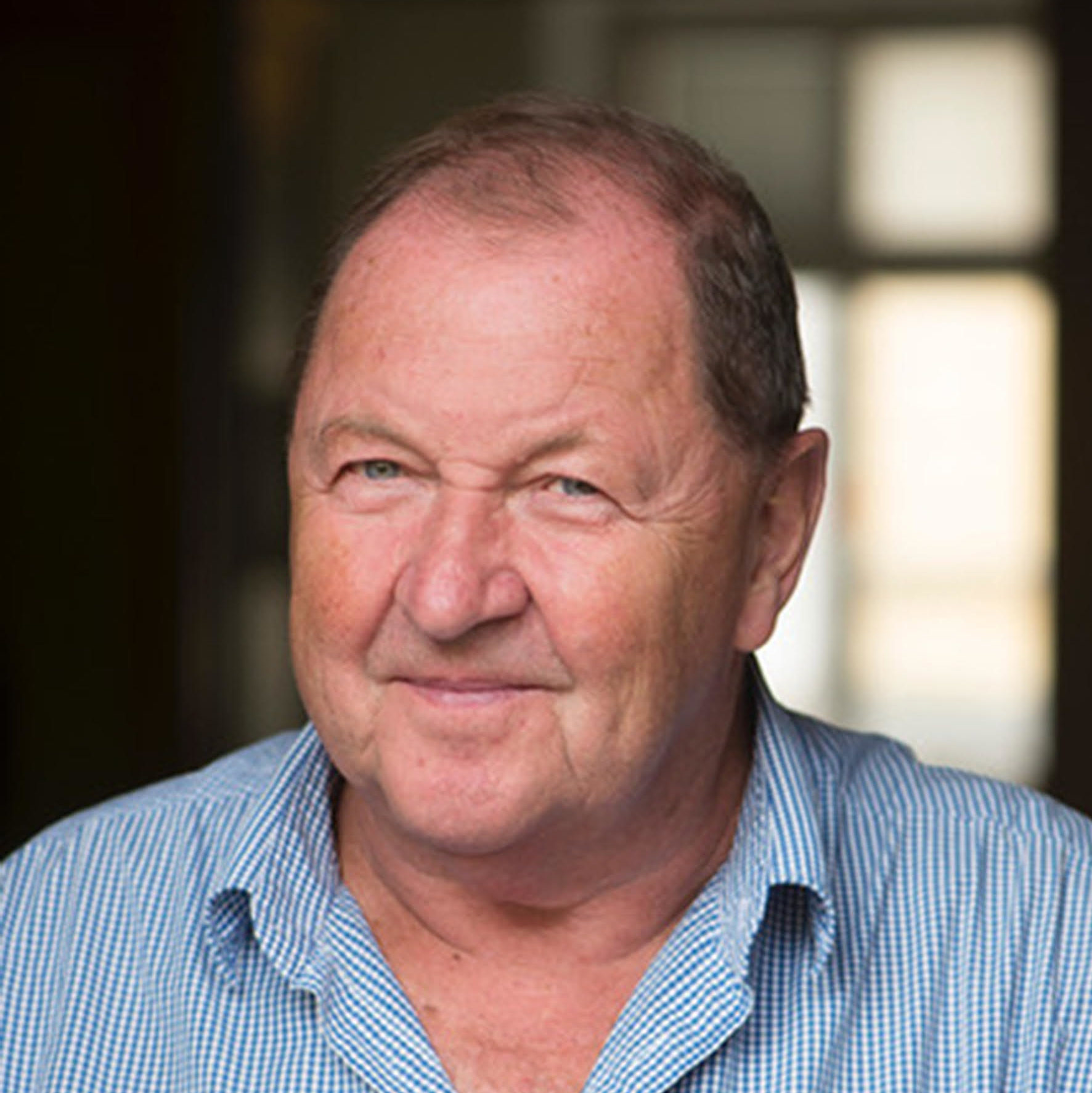
World of Glory:
The Films of Roy Andersson
Toronto, Ontario
Presented by
Toronto International Film Festival

One of cinema’s most revered artists, Roy Andersson has created a singular body of work, most notably with his “Living Trilogy” (Songs from the Second Floor; You, the Living; and A Pigeon Sat on a Branch Reflecting on Existence) and his recent feature About Endlessness.
Utilizing a trompe-l’œil technique, a static camera, and non-professional performers (who often deliver disarming confessions directly to the camera), he constructs his films as a series of eerie, comically absurd vignettes. All of his films since the 1990s were shot in his shop, Studio 24, and their unique aesthetic was pioneered in the commercials he produced there. Andersson’s films have a haunting atmosphere, punctuated by unexpected grace notes. This programme includes two key, rarely seen early features — A Swedish Love Story and Giliap — and two pivotal shorts.
Read film synopses below.

Born in Gothenburg in 1943. Film director, trained at the Swedish Film Institute’s Film School in Stockholm at the end of the 1960’s. Feature-length film debut in 1970 with A Swedish Love Story, followed by Giliap in 1975. After this, numerous award-winning advertising films. In 1989, the unfinished AIDS film Something Happened. In 1991 he started the Gothenburg Film Festival’s relay film project 90 minuter 90-tal with the short World of Glory. Co-editor of the anthology Successful Freezing of Mr. Moro in 1992. Contributing editor of the exhibition Sweden and the Holocaust. Honorary doctor at the University of Gothenburg. Honorary chairman of the Gothenburg International Film Festival since 2009.
With the multiple award-winning Songs from the Second Floor, 2000, Roy returned to the feature-length film format. The next film, You, the Living, premiered at the film festival in Cannes in 2007. The final part of the trilogy, A Pigeon Sat on a Branch Reflecting on Existence, premiered at the 71st Venice Film Festival, where it was awarded the Golden Lion for Best Film.
Few films have captured the highs and lows of adolescence like Andersson’s first feature. In a small town, teenagers Pår and Annika fall in love. The courtship is awkward and magically brief. It’s the relationship that’s the tough part, as the pair deals with jealousies, rivalries, miscommunication, and hormones. There are few depictions of adolescent humiliation more poignant than when Pår is beaten up by a competitor for Annika’s affection — right in front of her, as his friends look on and do nothing. Neither teen has great adult models to learn from. Most are plagued by debilitating anxiety. Pår’s mother never leaves the house, while Annika’s aunt Eva is desperately lonely. A festive outdoor dinner uniting the two families deteriorates into a class battle between the two fathers. A Swedish Love Story was an enormous hit after screening in competition at Berlin, and very influential. It has inspired filmmakers as different as Finnish director Dome Karukoski (The Grump, Tom of Finland) and Ruben Östlund, one of Andersson’s most passionate fans. Andersson (who has often cited De Sica as his first major influence) would never make a realist film like this again, but the work’s sensibility and moral compass is evident in everything that followed.
Giliap will be preceded by the short film World of Glory, which ushered in Andersson’s signature trompe l’oeil style. Andersson’s rarely screened, notorious second feature, Giliap, represented a significant departure for the director. While his debut worked within a naturalist framework, Giliap is propelled by a muted absurdism, and populated by somnambulant drifters. Its most energetic character is a near-Dickensian tyrant who runs the fading luxury hotel that serves as the film’s primary location. The hotel’s main sources of income are its restaurant and (especially) bar. The world outside is filled with rundown drunks who lurch like the zombies in George Romero’s Living Dead series. The ostensible hero is a taciturn waiter (Bo Widerberg favourite Thommy Berggren), who resembles a Beckett character with less motivation. He remains unnamed until Gustav, a psychotic schemer and the hotel’s only guest, dubs him “Giliap.” The two key plot developments are Giliap’s troubled romance with waitress Anna, and the bizarre, unexplained criminal plot Gustav ropes Giliap into. The film is somewhat ungainly, yet the atmosphere is similar to the hypnotic tableaux of Andersson’s subsequent work. Ambitious and adventurous, Giliap plays the same pivotal role for Andersson that Les Carabiniers did for Godard — adumbrating a significant shift in aesthetics and focus — though it would be another decade before he pursued these ideas in a feature format: Disappointed by Giliap’s reception, he turned to producing commercials for over 10 years, where he would hone the mature style he’s known for.
Tickets: www.tiff.net/events/giliap-preceded-by-world-of-glory
Andersson has often presented music as a balm, but it has also represented a kind of futile escape, a way to preserve fantasy or cover up selfishness and lack of consideration. You, the Living is packed with musicians, from amateur Dixieland players to the rocker Micke Larson (real-life metal guitarist Eric Bäckman), a self-centred Lothario who is pursued throughout the film by the lovelorn Anna (Jessika Lundberg). The film opens with assorted musicians driving their neighbours crazy by playing loud instruments (tubas, bass drums) in the middle of the night. The overreactions take on both comic and destructive effect, reflecting a central opposition in which pleasure and order fight it out. For every scene where order drops the hammer (a labourer is sentenced to the electric chair by beer-swilling judges for a botched magic trick), there’s one where the pursuit of pleasure is seen as selfish and destructive. A final sequence juxtaposes a jubilant Dixieland song with one of the most ominous images in all of Andersson’s body of work.
Tickets: www.tiff.net/events/you-the-living
Andersson’s fierce, triumphant return to narrative feature filmmaking, and winner of a Special Jury Prize at Cannes in 2000, Songs from the Second Floor was his first full-length project using techniques he’d honed in several hundred TV commercials and shorts such as World of Glory. Perhaps because its subject is the ways in which everything is reduced to the cash nexus, it is also his harshest film. Following failed furniture salesman Kalle (Lars Nordh) as he struggles to survive, Andersson’s narrative hints at other ways to view life, all of which are summarily rejected by his main character. (Kalle believes, for instance, that his son was ruined by poetry.) All spiritual pursuits and events are immediately monetized. Things play out as one might expect when an old friend of Kalle’s convinces him that Christianity is making a comeback — it being the year 2000 — and gets him to invest in crucifixes. Despite the bleak outlook on existence, almost every shot is charged with an unsettling beauty, as if Andersson and his team had reinvented the medium, like Georges Méliès with a more apocalyptic bent.
In the “Living Trilogy”’s final instalment, two hapless novelty salesmen wander around town hawking vampire fangs and rubber masks while bickering like an old married couple. Their small cruelties towards one another are contrasted with sequences involving Charles XII, Sweden’s most bellicose king, who reappears in the present to lead the country to a new series of disastrous defeats. The film culminates with a blistering, disturbing indictment of humanity’s lack of empathy for other humans and their fellow creatures. Though often compared to Fellini and even Monty Python, Andersson seems closest to Luis Buñuel here, in both the surrealist flourishes and the rage — as well as the genuine empathy and sorrow — that underlies his humour. Like late-period Buñuel, he is intermittently amused by human foibles, and even finds some grace notes. Two children blow bubbles off a balcony, while an aging patron in a Gothenburg bar recalls the establishment’s glory days in the 1940s in an unexpected musical number. (This being Andersson, the tribute is double-edged: the tune they sing is the same one Charles marches off to war to.) Andersson has cited Dostoevsky’s influence, and like the work of the great Russian master, A Pigeon Sat on a Branch… is not for the faint of heart. It is a provocative and disturbing critique of our times. The film earned Andersson the Golden Lion at Venice, making him the first Nordic director to win that prize since Carl Dreyer.
Tickets: www.tiff.net/events/a-pigeon-sat-on-a-branch-reflecting-on-existence
About Endlessness is preceded by Something Happened, a short film about AIDS. Started before Andersson made World of Glory in 1990 and completed after, the film generated controversy due to Andersson’s decision to criticize conspiracy theories and rumours about the disease with equally implausible speculation. The “Living Trilogy” films were mainly built around one or two central stories. About Endlessness, Andersson’s most recent work (rumoured to be his last), also has a single through line: a priest who has lost his faith. But the film has less of a conventional narrative than its predecessors — and is, in a weird way, more peaceful at times. The central conceit is our inability to understand scale, how the insignificant is perceived as monumental (and vice versa), and the moments of horror that result from this conflation. From the Chagall-influenced opening image of a couple floating elegantly over the ruins of Cologne, there’s a sense of resignation that verges on transcendence and even moments of genuine, uncomplicated joy. In earlier films, Andersson would ratchet up the absurdity by slowing down the pace of his scenes; this time he slows things down to take in the small pleasures. He’s like the driver at the end of the film who, after his car breaks down, keeps looking at the stretch of barren road behind and before him as if there was some sort of benediction coming.
Tickets: www.tiff.net/events/about-endlessness-preceded-by-something-happened



